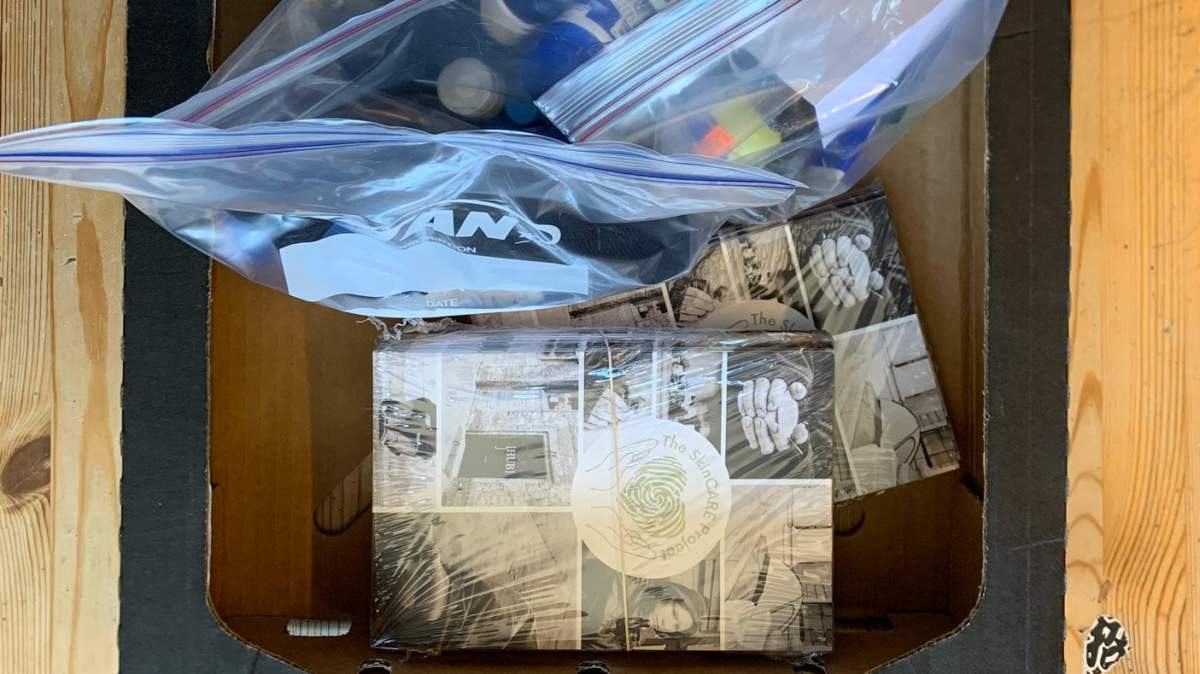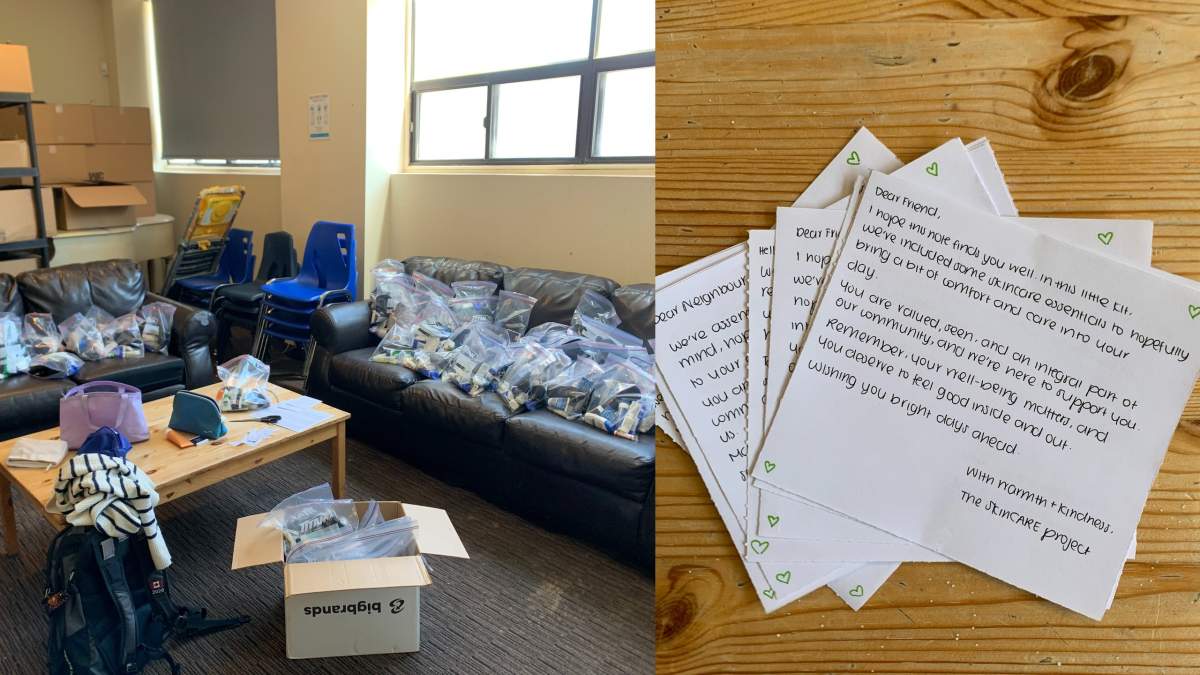A first-year medical student in Hamilton, Ont. says the idea of providing essential skin care kits to those experiencing homelessness came during a volunteering stint at a local shelter in 2023.

Miranda Branyiczky’s inspiration came from the toll harsh weather appeared to be having on the city’s unhoused checking into the Hub on Vine Street.
“I noticed that a lot of the clients coming in … had some sort of dermatologic concern that was going untreated,” she recalls.
“And there’s a lot of reasons for this … frequently exposed to weather, UV, and limited access to proper shelter.”
Amid fears skin cancer, frostbite, cellulitis and other serious dermatological conditions could become chronic health issues, Branyiczky says at that point launching the ‘Skin Care Project’ appeared to be a no-brainer.
“The project has two main components … handing out these skincare kits, including things like basic hygiene items … sanitary wipes, tissues and some first aid items as well, like moisturizers” she explained.

Get daily National news
“We’ve also got sunscreen, socks and the kits also include a little handwritten note from a volunteer to add a bit more of a personal touch.”
Branyiczky says informational booklets on optimizing hygiene and foot care as well as a list of clinics and other resources one can visit in the community make up the second piece.
“I guess the main part of it is recognizing common conditions, so it’s got a lot of photos people can refer back to,” she said.
- Real Canadian Superstore fined for ‘misleading’ Product of Canada displays
- Danielle Smith promises Alberta referendum over immigration, Constitution changes
- ‘No reason to continue discussing’: Ontario mayor wants Andrew’s name dropped
- Canadians say U.S. no longer an ally, is bigger threat than Russia: poll
The student-led initiative has distributed over 100 kits to date to the Hub’s clinic and the Shelter Health Network with a second wave expected soon.
Much support has come from local businesses supplying products to make up the kits.
Branyiczky sees the project as simply another key element in addressing harm reduction among those living rough.
“In my classes, we talk a lot about preventative health care and thinking about what can be done further upstream to prevent what we’re seeing in the ER,” she says.









Comments
Want to discuss? Please read our Commenting Policy first.